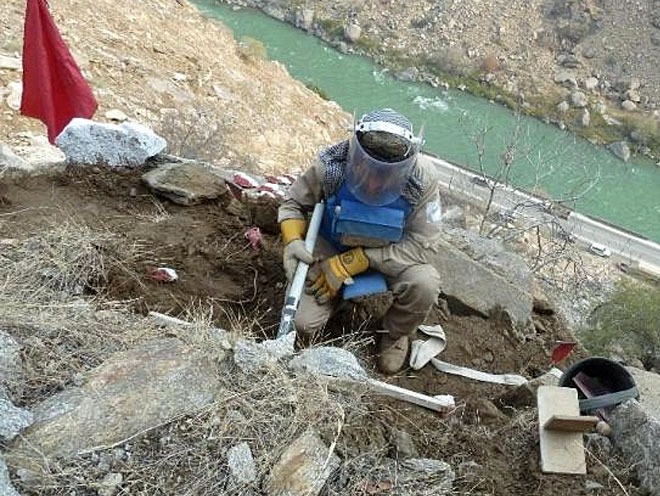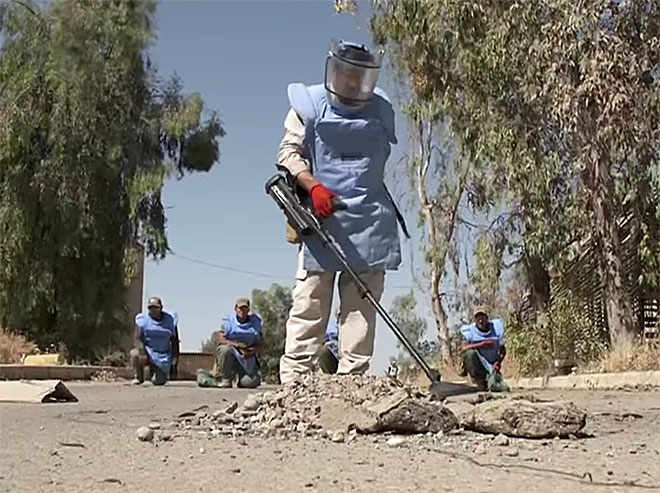
Janus Global Operations, an international integrated stability operations company, has been tasked to provide a component of range support services for the U.S. Air Force.
Janus Global’s project work will be under URS Federal Services, an AECOM company, which has been awarded a 16-year, $3.6 billion Air Force contract to provide range support services.
The overall project includes “mission and target management support for testing, tactics, development, advanced training, and Air Force and Joint urgent operational needs missions” at Air Force bases in Nevada and California, AECOM announced.
These sites include the Nevada Test and Training Range, Leach Lake Training Range, and Nellis and Creech Air Force Bases.
PBS NewsHour recently featured Janus Global’s work in Mosul, Iraq, on behalf of and funded by the U.S. Department of State, to clear thousands of improvised explosive devices (IED’s) planted by ISIS throughout the city.

Janus began its IED clearance operations in Iraq in the spring of 2016, beginning in Ramadi, and has since expanded further into Anbar, as well as Nineveh, and the Kurdistan Regional Government.
These operations play a pivotal role in facilitating access to critical infrastructure across Iraq related to the provision of electricity, clean water, transportation, manufacturing, and education.
Once cleared, these facilities can be safely repaired and begin providing the services needed to support refugees and internally displaced persons as they return to their communities and begin to rebuild.
In the PBS report, entitled, “The battle for Mosul is over, but this hidden ISIS danger could lurk for years,” correspondent Marcia Biggs reported:
“Janus has already cleared 727 buildings, removing 3,000 IEDs, which they say ISIS was producing on assembly lines at an industrial scale.”
(Iraq may have ousted Islamic States militants from the city of Mosul over the summer, but the major task of finding and destroying the mines, booby traps and bombs remains. A security firm hired by the U.S. and Iraqi workers are making progress to clear major areas, but it could take years or even decades. Courtesy of PBS NewsHour and YouTube)
Biggs toured Mosul with a Janus Global team leader, who explained to Biggs how Janus focused on installations critical to Iraqi’s return to their city, such as Mosul Technical Institute, which had been used by ISIS as a bomb-making factory.
The report shows the wreckage of this prized institution. “Our priority is community . . . infrastructure,” he said.
“You have [first to get to] schools, power, sewer, water, so that the area can accept people back into it.”

Janus Global is building capacity as it conducts clearance operations by first training Iraqis to conduct survey operations.
When an Iraqi crew locates an IED, Janus experts eliminate the threat. Over time, Janus’ Iraqi partners will assume these roles themselves.
Biggs concluded her report with this exchange with the Janus team leader:
PBS: “So the Janus team is focusing on progress in the rest of the city, building by building, bomb by bomb.”
JGO: “Whoever made this device had a set goal. And to allow him to win, people get hurt. So you kind of compete to be better than him to take it out before it can do any harm.”
PBS: “So, you feel like you’re winning the battle against ISIS?
JGO: “Yes, one IED at a time.”
 Janus Global Operations stability operations work is conducted by thousands of employees serving clients in North America, Europe, Africa, the Middle East and Asia.
Janus Global Operations stability operations work is conducted by thousands of employees serving clients in North America, Europe, Africa, the Middle East and Asia.
Janus’ services include munitions response; demining; intelligence support; logistics; life support; risk management; communications; and other services in some of the world’s most challenging and hostile environments.
















